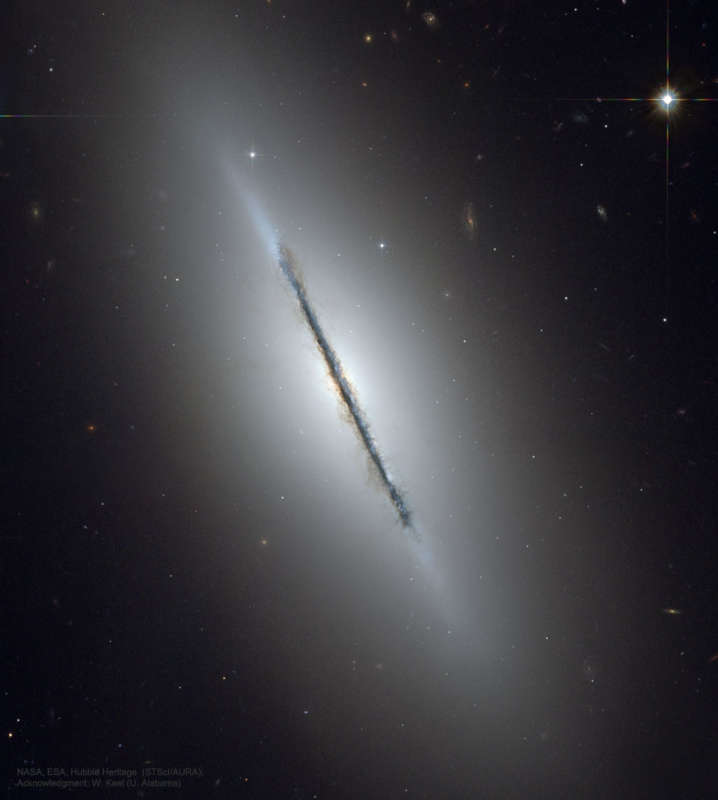
|
Credit & Copyright: W. Keel
(U. Alabama)
Explanation:
Why is this galaxy so thin?
Many disk galaxies are just as thin as NGC 5866,
pictured here, but are not
seen edge-on from our vantage point.
One galaxy that is situated edge-on is our own
Milky Way Galaxy.
Classified as a
lenticular galaxy, NGC 5866
has numerous and complex dust lanes appearing dark and red,
while many of the bright stars in the disk give it a more blue underlying hue.
The blue disk of young stars can be seen extending past the
dust in the extremely thin galactic plane,
while the bulge in the disk center appears tinged more orange from the
older and redder stars that likely exist there.
Although similar in mass to our
Milky Way Galaxy, light takes about 60,000
years to cross
NGC 5866, about 30 percent less than light takes to cross our own Galaxy.
In general, many disk galaxies are very thin because the gas that
formed them collided with itself as it rotated about the gravitational center.
Galaxy NGC 5866
lies about 44 million light years distant toward the constellation of the Dragon
(Draco).
Almost Hyperspace:
Random APOD Generator
|
January February March April May June July August September October November December |
| |||||||||||||||||||||||||||||||||||||||||||||||||||||||
NASA Web Site Statements, Warnings, and Disclaimers
NASA Official: Jay Norris. Specific rights apply.
A service of: LHEA at NASA / GSFC
& Michigan Tech. U.
Based on Astronomy Picture
Of the Day
Publications with keywords: edge-on galaxy
Publications with words: edge-on galaxy
See also:
